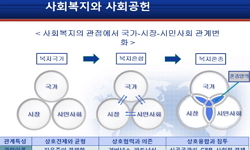본고는 청담 최송화 선생님의 희수를 기념하기 위하여 청담 선생님의 학문세계와 그 중심에 있는 공익론의 학문적 의의를 살펴보고 그의 공익론이 공익 개념의 발전에 끼친 영향과 청담의 ...
http://chineseinput.net/에서 pinyin(병음)방식으로 중국어를 변환할 수 있습니다.
변환된 중국어를 복사하여 사용하시면 됩니다.
- 中文 을 입력하시려면 zhongwen을 입력하시고 space를누르시면됩니다.
- 北京 을 입력하시려면 beijing을 입력하시고 space를 누르시면 됩니다.

晴潭의 公益論과 公益關聯 行政判例 = Songwha Choi’s Public Interest Theory and Related Administrative Law Cases in Korea
한글로보기부가정보
국문 초록 (Abstract)
본고는 청담 최송화 선생님의 희수를 기념하기 위하여 청담 선생님의 학문세계와 그 중심에 있는 공익론의 학문적 의의를 살펴보고 그의 공익론이 공익 개념의 발전에 끼친 영향과 청담의 공익론 이전과 이후의 공익관련 행정판례의 전개와 그 발전방향에 대해 논구하는 것을 기본적인 목적으로 한다. 청담 선생은 일생동안 행정법의 연구와 교육에 헌신하셨지만 그의 학문세계에서 가장 두드러지는 것은 그의 공익론이다. 그는 일생동안 행정법의 연구와 교육에 헌신하였는데 그의 공익론은 이러한 그의 학문세계를 배경으로 하고 있다. 청담은 스승이신 목촌 김도창 박사의 학풍을 이어받았고 그의 공익론은 그 연장선상에서 전개된 것이다. 또한 그의 공익론은 주로 독일의 공익론의 바탕 위에 동양의 공익사상을 검토하고 그에 근거하여 우리 행정법학에서 공익 관념이 어떠한 법리적 의미를 가지는가 하는 점을 논의하였다. 그의 공익관념은 종래의 규준적 공익관과 잠재적공익관의 변증법적 지양의 과정을 통하여 성립한다. 그는 규준적 공익의 필요성을 인정하지만 우리 시대와 같은 다원화시대에서 잠재적 공익의 발견이 더욱 본질적인 과제임을 인식하고 잠재적 공익판단의 절차적 구조화를 주장한다. 이러한 그의 공익 개념에 대한 천착의 궁극적 목표는 공익의 법문제화이다. 공익판단이 실제로는 법적 판단에 있어서 핵심적인 기능을 하는 것이었음에도 공익판단은 종래 법판단이라는 인식이 충분하지 못하였다. ‘공익의 법문제화’라는 목표를 위하여 그는 공익개념을 여러 가지로 분석하는데, 진정공익과 사실적 공익의 구분을 구분하고 진정공익을 실현하도록 하는 것이 결국 공익의 법문제화의 과제임을 시사한다. 결과적으로 청담은 그동안 우리 학계에서 막연하게만 논의되던 공익관념에 대한 깊이 있는 성찰을 하고 이것은 이후의 한국 행정법학의 공익관념의 발전에 초석이 되었을 뿐만 아니라 향후의 행정판례에서의 공익관념에도 영향을 미쳤다. 청담 최송화 교수의 학문세계의 핵심을 이루는 공익론은 아직도 우리 학계와 판례이론에서 광범위하게 받아들여지지는 않고 있으며 그의 공익론 에 근거한 공익의 법문제화는 아직도 초보단계에 있다고 생각된다. 그러나 이미 살펴본 바와 같이 행정판례에서 나타난 공익논증의 구조화와 법토포스로서의 공익 개념의 진전은 공익과 사익만이 아니라 공익과 다른 공익의 충돌마저 빈번한 우리 사회가 공익에 대한 보다 철저하고 구조적인 이해와 논증의 문제의식을 확고히 채택하고 있다는 확신을 준다. 이처럼 청담의 공익론이 오늘의 행정판례에 스며든 모습을 보면서 향후의 공익판단의 법문제화를 위하여 다음과 같은 제언을 하고자 한다. 첫째, 현재 공익과 사익의 충돌만을 전제로 하는 소송제도를 비롯한 각종의 법제도는 공익과 다른 공익의 충돌도 염두에 두는 방향으로의 변화가 이루어져야 한다. 둘째로, ‘공익의 원칙’을 행정법의 일반원칙의 하나로서 광범위하게 적용함으로써 법토포스로서의 공익의 활용범위를 넓힐 필요가 있다. 셋째로, 공익의 논증에서 비용-편익분석과 같은 다양한 공익에 대한 평가방법론에 대한 개발이 필요하다.
다국어 초록 (Multilingual Abstract)
The main purpose of this article is to review Professor Songwha Choi’s Public Interest Theory, evaluate its impact on administrative law cases in Korea, and propose future directions. This article has been written in honor of Professor Choi upon rea...
The main purpose of this article is to review Professor Songwha Choi’s Public Interest Theory, evaluate its impact on administrative law cases in Korea, and propose future directions. This article has been written in honor of Professor Choi upon reaching 77 (Heesoo in Korean). Professor Songwha Choi has dedicated his whole life to research and education in the field of administrative law. The most outstanding academic achievement of Professor Choi is his Public Interest Theory. His theory builds upon Germany’s public interest theories to analyze and assess public interest ideology in Korean administrative law. His concept of public interest has been established through dialectical sublation of normative public interest and latent public interest. While acknowledging the necessity of normative public interest, his theory emphasizes the importance of identifying latent public interest in this pluralistic society and advocates structuring the process for assessing latent public interest. His theory differentiates ‘true public interest’ from ‘public interest as a matter of fact’ and claims that procedural requirements should direct identifying the true public interest. Professor Choi has developed a deep understanding of the concept of public interest, which became the foundation of legal conceptualization of public interest in Korean administrative law. His theory, I believe, has influenced many administrative law cases in Korean courts. However, his theory has not been accepted widely enough,despite its importance and wide usefulness. In Korea, a public interest is frequently in conflict with other public interests or private interests. As such, Professor Choi’s Public Interest Theory can play a crucial role in shaping a structural understanding of public interest in the field of administrative law and applying it to Korean courts. With this in mind, I would like to propose a few potential directions. First, legal systems should consider not only conflicts between a public interest and a private interest but also conflicts between a public interest and its competing public interests. Second, ‘Principle of Public Interest’ should be used as one of the general principles in Korean administrative law. Third, various evaluation methods such as cost-benefit analysis should be leveraged in developing evaluation methodology for legal argumentation of public interest.
참고문헌 (Reference)
1 이원택, "현종조의 복수의리 논쟁과 공사관념, in 한국법사에서의 공사논변의 전개" 서울대학교 법학21 연구단 한국법연구센터 2001
2 김유환, "현대행정법강의" 법문사 2018
3 최송화, "현대공법의 이론 (목촌 김도창박사 화갑기념논문집)" 1982
4 최송화, "현대 헌법학이론(이명구박사화갑기념논문집)" 1996
5 서원우, "현대 법학의 제문제(서돈각박사 화갑기념논문집)" 1986
6 서원우, "행정학의 제문제, 청계 박문옥박사 화갑기념논문집" 신천사 1986
7 최송화, "행정판례연구 Ⅳ" 2001
8 김남진, "행정법의 기본문제" 경문사 1989
9 김남진, "행정법Ⅰ" 2001
10 최송화, "행정규제완화와 재량권남용방지를 위한 법제정비방안" 한국법제연구원 (4) : 1995
1 이원택, "현종조의 복수의리 논쟁과 공사관념, in 한국법사에서의 공사논변의 전개" 서울대학교 법학21 연구단 한국법연구센터 2001
2 김유환, "현대행정법강의" 법문사 2018
3 최송화, "현대공법의 이론 (목촌 김도창박사 화갑기념논문집)" 1982
4 최송화, "현대 헌법학이론(이명구박사화갑기념논문집)" 1996
5 서원우, "현대 법학의 제문제(서돈각박사 화갑기념논문집)" 1986
6 서원우, "행정학의 제문제, 청계 박문옥박사 화갑기념논문집" 신천사 1986
7 최송화, "행정판례연구 Ⅳ" 2001
8 김남진, "행정법의 기본문제" 경문사 1989
9 김남진, "행정법Ⅰ" 2001
10 최송화, "행정규제완화와 재량권남용방지를 위한 법제정비방안" 한국법제연구원 (4) : 1995
11 최송화, "한국의 공법학자들—생애와 사상-" 한국공법학회 2003
12 김철용, "토지의 공개념에 관한 검토" 1978
13 이태재, "토지소유권의 특성과 토지공개념" 한국토지개발공사 1989
14 허재영, "토지공개념의 확대도입방안" 대한변호사협회 1989
15 조규창, "토지공개념의 모호성" 1985
16 김상용, "토지공개념과 그 실천" 한국토지개발공사 1989
17 조남호, "조선 주자학에서의 공과 사의 문제, in 한국법사에서의 공사논변의 전개" 서울대학교 법학21 연구단 한국법연구센터 2001
18 김도창, "일반행정법론 (상)" 청운사 1988
19 정긍식, "인제임정평교수화갑기념 신세기의 민사법문제" 2001
20 김문현, "우리 헌법상의 토지공개념" 한국토지개발공사 1989
21 최송화, "법치행정과 공익" 박영사 2002
22 박병호, "법제사연구에서의 공과 사"
23 최송화, "법과 정책에 관한 연구" 26 (26): 1985
24 최송화, "미국행정법의 장래" 21 (21): 1980
25 이강혁, "기본권과 공공이익" 1978
26 최송화, "공익론-공법적 탐구-" 서울대학교 출판부 2002
27 최송화, "공익개념의 법문제화: 행정법적 문제로서의 공익" 40 (40): 1999
28 宮崎良夫, "行政法における公益" 日本公法學會 (54) : 1992
29 溝口雄三, "公私" 三省堂 1996
30 溝口雄三, "公共哲學 Ⅰ" 東京大學出版會 2002
31 溝口雄三, "中國の公と私" 硏文選書 1995
32 Läufer, T., "“Gemeinwohl” und “Öffentliches Interesse” summarische Wertsetzung oder unverzichtbare Rechtsprechungshilfe" 1975
33 Häberle, Peter, "Öffentliches Interesse als juristisches Problem" Athenäum Verlag 1970
34 Stolleis, M., "Öffentliches Interesse als juristisches Problem" 65 (65): 1974
35 Stettner, R., "Öffentliches Interesse als juristisches Problem" 15 : 1974
36 Feindt, "Zur Gemeinwohlbindung des öffentlichen Dienstes" 1975
37 Steiger, "Zur Entscheidung kollidierender öffentlicher Interessen bei der politischen Planung als rechtlichem Problem"
38 Weber, M., "Wirtschaft und Gesellschaft, Grundriss der verstehenden Soziologie 2" 1956
39 Wolff, Bachof, "Verwaltungsrecht Ⅰ" 1994
40 Achterberg, N., "Strukturen der Geschichte des Verwaltungsrechts und der Verwaltungsrechtswissenschaft" 1979
41 Link, "Staatszwecke im Verfassungsstaat" 48 : 1990
42 Leisner, W., "Privatinteressen als öffentliches Interesse" 1970
43 Brugger, "Konkretisierung des Rechts und Auslegung des Rechts" 119 : 1994
44 Stettner, R., "Gemeinwohl und Minimalkonsens" 28 : 1978
45 Häberle, Peter, "Die Gemeinwohlproblematik in rechtswissenschaftlicher Sicht" 14 : 1983
46 Häberle, Peter, "Besprechungen-Das Gemeinwohl als Schrankenschranke" 1970
47 Fach, "Begriff und Logik des “öffentlichen Interesses”" 1974
동일학술지(권/호) 다른 논문
-
- 한국행정판례연구회
- 최봉석
- 2018
- KCI등재
-
- 한국행정판례연구회
- 함인선
- 2018
- KCI등재
-
- 한국행정판례연구회
- 신철순
- 2018
- KCI등재
-
醫療公法(Medical Public Law)의 基礎로서의 (齒科)醫療行爲 ― 의료행위의 개념 및 범주에 대한 공법적 고찰 ―
- 한국행정판례연구회
- 안동인
- 2018
- KCI등재
분석정보
인용정보 인용지수 설명보기
학술지 이력
| 연월일 | 이력구분 | 이력상세 | 등재구분 |
|---|---|---|---|
| 2028 | 평가예정 | 재인증평가 신청대상 (재인증) | |
| 2022-01-01 | 평가 | 등재학술지 유지 (재인증) |  |
| 2019-01-01 | 평가 | 등재학술지 유지 (계속평가) |  |
| 2016-01-01 | 평가 | 등재학술지 유지 (계속평가) |  |
| 2012-01-01 | 평가 | 등재 1차 FAIL (등재유지) |  |
| 2009-01-01 | 평가 | 등재학술지 선정 (등재후보2차) |  |
| 2008-01-01 | 평가 | 등재후보 1차 PASS (등재후보1차) |  |
| 2007-01-01 | 평가 | 등재후보학술지 유지 (등재후보2차) |  |
| 2006-01-01 | 평가 | 등재후보 1차 PASS (등재후보1차) |  |
| 2004-01-01 | 평가 | 등재후보학술지 선정 (신규평가) |  |
학술지 인용정보
| 기준연도 | WOS-KCI 통합IF(2년) | KCIF(2년) | KCIF(3년) |
|---|---|---|---|
| 2016 | 0.3 | 0.3 | 0.32 |
| KCIF(4년) | KCIF(5년) | 중심성지수(3년) | 즉시성지수 |
| 0.34 | 0.36 | 0.513 | 0.11 |




 KCI
KCI






